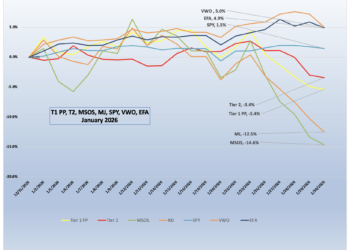With the entire cannabis industry’s focus on rescheduling and descheduling, federal courts are starting to warm to the idea that cannabis companies should have access to bankruptcy protection.
Since the start of the legal state-based cannabis industry, plant-touching companies have not been able to access bankruptcy protection due to the federal illegal status of cannabis, but recent court actions indicate that could be changing.
Frank Bailey, a retired U.S. bankruptcy judge who now serves as president of the Pioneer Public Interest Law Center, recently opined during a panel on restructurings at the 2023 State of the Cannabis Industry Conference in Waltham, Mass., that the tides are slowly turning toward bankruptcy courts granting access to cannabis companies.
Historically, when cannabis companies have attempted to seek bankruptcy protection, they are frequently rebuffed by federal regulators who file objections based on federal prohibition of cannabis. The courts are able to use their own discretion when considering these routine objections, but only recently have they started taking the side of cannabis companies.
“Sometimes even if there’s cause, there can be a good reason to keep it in court,” said Bailey. “We have seen judges that concluded that there are unusual circumstances to allow them.”
For the most part, these moves are occurring in courts in California and Colorado. The older the adult-use cannabis market, the more likely it will have companies seeking bankruptcy protection.
“If you look at the case law, it’s mostly out of Colorado and California, which is not surprising given where the states are vis a vis the cannabis industry,” said Lawrence Kotler, a bankruptcy attorney for Duane Morris.
A significant example of this is currently before the U.S. Bankruptcy Court for the District of California. In that case, Hacienda Co. LLC, which operates as a cultivator and distributor of cannabis under the name Lowell Farms, is looking for debt protection under Chapter 11.
Hacienda transferred all of its U.S. company’s assets to a Canadian company in exchange for 9.4% of the shares in the parent company. In order to fulfill outstanding obligations, Hacienda came up with a plan to slowly sell off its shares at a rate that would not flood the market. Basically, the debtor is attempting to cash out of its cannabis dealings rather than continue to operate in a federally prohibited industry.
Despite precedents in previous cannabis bankruptcy cases, the judge in this case allowed it to proceed last fall when he struck down two motions from the federal government to block the attempts of Hacienda to obtain bankruptcy protection. Essentially, the court found that because the debtor was attempting to liquidate their holdings in a cannabis company, their financial plan did not involve continued participation in a federally illegal business practice. The debtor was selling out rather than taking part.
“I really do think it’s kind of a game changer and maybe a blueprint for future cannabis related bankruptcy,” said Lawrence Kotler, who co-chair’s the Bankruptcy and Fiduciary Representations division at Duane Morris.
It is possible cannabis could look to the insurance industry to find a legal path to bankruptcy protection, according to Kotler. He explained that insurance companies are not legally allowed to file for federal bankruptcy because they are regulated by state law. But those companies are typically owned by holding companies, which in turn, can file for bankruptcy.
“The idea is that when an insurance company is in rehabilitation or liquidation at the state level, the holding company usually files,” said Kotler. “And the plan for the holding company’s creditors is, ‘If there’s anything upstream, we’ll be able to distribute it to our creditors.’ I think that could be a template for future cannabis cases.”
Kotler noted that there has been clear shifts over time in the attitudes toward cannabis from bankruptcy courts. He noted a 2019 case about a company that produced aquaculture and hydroponics equipment that were intended to be used for growing cannabis.
“Way to Grow didn’t manufacture cannabis, wasn’t a dispensary, and didn’t have a license to do anything with cannabis. It literally was just somebody making aquaculture stuff for people to grow plants indoors,” he said. “The bankruptcy judge dismissed the case as a bad faith filing.”
Now a company that explicitly did touch plants is getting a chance at federal bankruptcy protection.
“I think that was kind of the system’s view on cannabis. But now I think it’s really starting to change, and obviously if it gets taken down from a Schedule I to a Schedule III, that will be a game changer.”
The Hacienda case is ongoing with a hearing scheduled for May 7.











